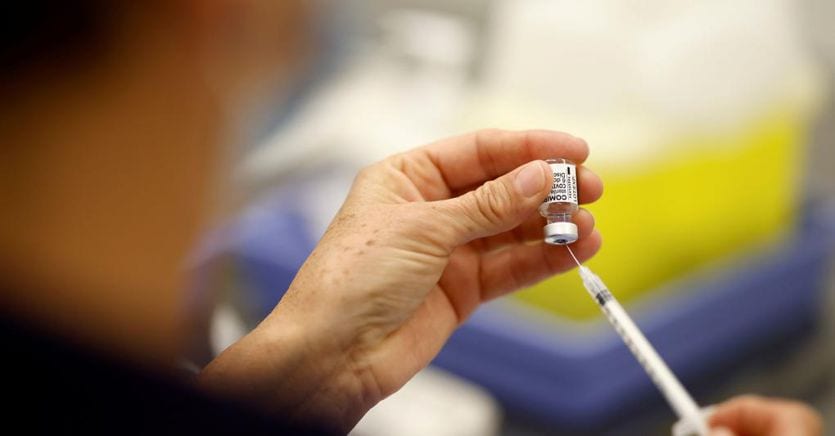The Great Britain postponed the total reopening by one month due to the spread of the Delta variant. In Germany, where on June 14 for the first time in over eight months the number of new infections was kept below the threshold of one thousand cases, it is thought of a relaxation of the obligation to wear a mask. The days from 15 to 19 June will instead be in Moscow “non-working” to contain a new advance of the epidemic that in Russia it hit a new peak on June 13th. The Coronavirus emergency continues to strike differently in the Old Continent. In ItalyAccording to Lab 24 on Our World in Data data, the seven-day moving average of new daily infections is 28.5 per million inhabitants. This is the lowest value after that of Germany (23,5). Great Britain e Spain are above 100 (107 and 104 respectively), the Russia is at 83, la Greece a 71 e la France a 58.
Great Britain: Delta variant halts reopening
The Delta variant (formerly called the Indian variant) has slowed down the rush to reopen Great Britain. In 14 days the epidemiological situation of the country has changed radically with an upward trajectory: on 1 June the average of daily infections per million inhabitants was 48.73 cases, the lowest level among the large European countries and infinitely far from the peaks at the beginning of the year when peaks of up to 880 cases were recorded. In the last two weeks the infections have started to run again and Great Britain is again over 100: 107.3 cases per million inhabitants. Data that prompted Prime Minister Boris Johnson to make an obligatory choice: the postponement of a month of the total reopening, which is postponed from 21 June to 19 July.
Loading…
Spain: gradual but slow decline
Infections in Spain are decreasing but slowly. As of June 14, the seven-day moving average of new coronavirus cases stood at 104.6. According to the national head of the Covid emergency, Fernando Simón, cases are now concentrated mainly among the youngest, because most are not yet vaccinated. Positive signs come from the occupation of beds in intensive care units with levels below the 10% threshold. It was not since September 2020 that such a low figure has been recorded. In all, 3.74 million cases and 80,517 deaths have been reported in Spain since the start of the pandemic. 27% of the Spanish population completed their period, while 45.3% received at least one dose.
Third wave in Russia
The cases of Covid-19 in Russia continue to increase. The daily average of the last seven days is 84 new infections per million inhabitants. There were 14,723 cases on June 13, the highest number in one day since February 13. According to the director of the National Research Center for Epidemiology and Microbiology Gamaleya, Aleksandr Gintsburg, “the collected data indicate that numerous modified versions of Sars-CoV-2, which are not English or Indian, are circulating in Russia.”
Descent of infections in Greece
Reverse path of Greece: the contagion curve began to decline on May 30 and after two weeks the seven-day moving average halved from over 150 cases per one million people to 71.7.
